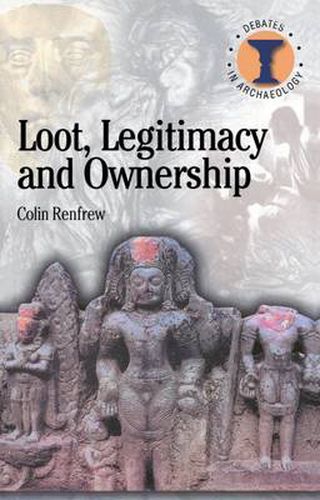Readings Newsletter
Become a Readings Member to make your shopping experience even easier.
Sign in or sign up for free!
You’re not far away from qualifying for FREE standard shipping within Australia
You’ve qualified for FREE standard shipping within Australia
The cart is loading…






Colin Renfrew argues that what is most precious in archaeology is the information that excavations can shed on our human past. Yet the clandestine and unpublished digging of archaeological sites for gain - looting - is destroying the context in which archaeological findings can be understood, as well as sabotaging the most valuable information. It is the source of most of the antiquities that appear on the art market today - unprovenanced antiquities, the product of illicit traffic financed, knowingly or not by the collectors and museums that buy them on a no-questions-asked basis. This trade has turned London as well as other international centres into a ‘thieves kitchen’ where greed triumphs over serious appreciation of the past. Unless a solution is found to this ethical crisis in archaeology, Renfrew argues that our record of the past will be vastly diminished, and his book lays bare the misunderstanding and hypocrisy that underlies that crisis.
$9.00 standard shipping within Australia
FREE standard shipping within Australia for orders over $100.00
Express & International shipping calculated at checkout
Colin Renfrew argues that what is most precious in archaeology is the information that excavations can shed on our human past. Yet the clandestine and unpublished digging of archaeological sites for gain - looting - is destroying the context in which archaeological findings can be understood, as well as sabotaging the most valuable information. It is the source of most of the antiquities that appear on the art market today - unprovenanced antiquities, the product of illicit traffic financed, knowingly or not by the collectors and museums that buy them on a no-questions-asked basis. This trade has turned London as well as other international centres into a ‘thieves kitchen’ where greed triumphs over serious appreciation of the past. Unless a solution is found to this ethical crisis in archaeology, Renfrew argues that our record of the past will be vastly diminished, and his book lays bare the misunderstanding and hypocrisy that underlies that crisis.